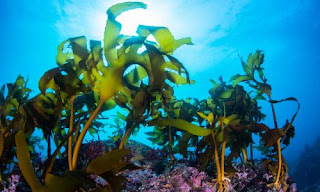3 Key Benefits of Seaweed for Plants
Also known as a biostimulator, Seaweed fertilizer is a nutrient-rich organic fertilizer that aids in promoting stronger and healthier plants. It has complex carbohydrates, vitamins, and several other vital minerals that plants require for growth. Since seaweed fertilizers are made from all-natural sources, they are absolutely safe for application on all types of plants. They are also safe for pets and have no harmful effects on the environment. Seaweed can be applied as a base fertilizer or a foliar fertilizer to nurture healthier and vibrant plants. Also, they are easily absorbed by the root system of the crops, helping in disease resistance, plant growth, and improved crop quality. Here are the top 3 benefits gardeners get when using seaweed for plants.
Better Soil Quality
The alginates found in seaweed work as conditioners for the soil and form cross-linked polymers by reacting with metals in the soil. These polymers aid in sustaining water for a long time, keeping the soil healthy and well-conditioned. Also, it activates microorganisms in the soil that work as catalysts, thus boosting the soil quality. Moreover, it improves the consistency and texture of the soil.
Avoid Pests and Weeds
One of the biggest benefits of using seaweed fertilizers for plants is the reduced need to weed the garden. These fertilizers contain salts that irritate pests and insects like slugs, worms, and snails. When using seaweed, it is recommended to use the liquid form of seaweed fertilizer since it does not disperse in the wind, like mulch and dry compost.
Improved Crop Yield
Seaweed fertilizers are highly effective for improving crop yield and long-lasting fruits and vegetables. A huge amount of organic substances present in the seaweed provide minerals and stimulate natural growth in flowering plants. If applied 12 to 15 days before harvesting, seaweed can lengthen the shelf life of vegetables and fruits. The fertilizer also enhances the plant’s resistance to stress conditions such as diseases.
So, including seaweed fertilizer in your composting or fertilizing schedule is the best way to get better and healthier crops. Make sure you follow the instructions carefully while applying seaweed in your garden for your plants and crops.




Comments
Post a Comment